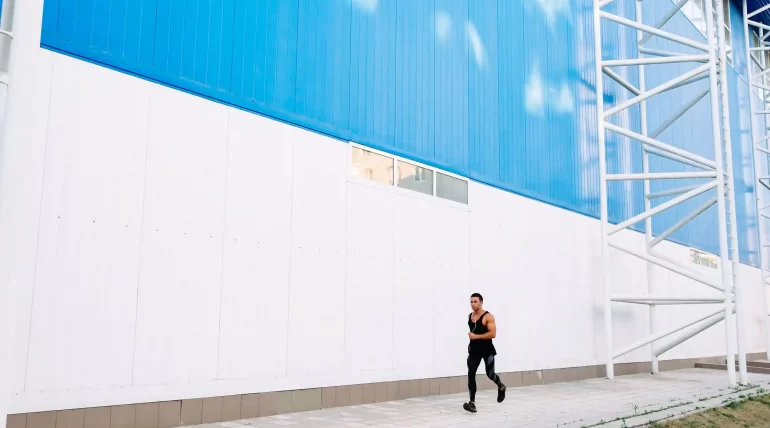
When you think of Sydney, you likely picture iconic landmarks like the Sydney Opera House, the Harbour Bridge, and the bustling CBD. But behind the gleaming buildings and architectural marvels of this vibrant city, a special group of professionals work quietly in the background—industrial painting contractors. These unsung heroes are responsible for keeping industrial facilities, warehouses, factories, and commercial buildings looking sharp and staying safe.
In this guide, we’re going to walk you through everything you need to know about hiring professional industrial painting contractors in Sydney—from their step-by-step process to how they can elevate your building’s durability and aesthetic appeal. So, whether you’re a business owner, facility manager, or just curious, keep reading!
What is an Industrial Painting Contractors?
Industrial painting contractors specialize in coating and painting large-scale industrial properties. These experts work with specialized materials and tools to protect infrastructure, enhance the appearance of buildings, and ensure compliance with safety standards. The job isn’t as simple as slapping a coat of paint on a wall; it involves detailed knowledge of different types of surfaces, environmental factors, and the latest coating technologies.
Why do you need Industrial Painting Contractors?
- Durability: Industrial buildings are exposed to harsh elements, and these professionals know how to apply paints that stand up to wear and tear.
- Safety Compliance: Many industrial spaces need coatings that prevent corrosion, ensure fire resistance, or provide anti-slip surfaces to meet safety standards.
- Aesthetic Appeal: A fresh coat of paint not only protects but also boosts the overall image of your facility, making it more appealing to visitors, clients, and employees.
Step-by-Step Process Followed by Industrial Painting Contractors in Sydney
The process of industrial painting isn’t a quick weekend project—it’s a meticulous job that requires expertise, time, and precision. Here’s a breakdown of the typical steps industrial painting contractors follow:

1. Initial Consultation & Inspection
Before any paintbrushes are lifted, the contractors conduct a detailed inspection of your site. During this phase, they evaluate the condition of the surfaces, the scope of work, and any special requirements. This also includes discussing the aesthetic goals and safety regulations to ensure everything meets the local standards.
2. Surface Preparation
The key to a long-lasting paint job is all in the prep work. Contractors will clean and prepare the surfaces by:
- Removing dirt, grease, or old paint
- Sandblasting or power washing to create a smooth surface
- Treating any rust or corrosion on metal surfaces
- Repairing cracks and holes in the walls or ceilings
Surface preparation is crucial for ensuring the paint adheres properly and lasts for years.
3. Choosing the Right Paint & Coatings
Not all paints are created equal. Industrial spaces require specific coatings designed for durability and performance. Contractors will select the appropriate paint type based on:
- The materials being painted (metal, concrete, wood)
- The environment (extreme heat, humidity, or chemical exposure)
- The purpose of the coating (protection, aesthetics, or both)
Did you know? Some industrial paints are designed to be fire-resistant, anti-corrosive, or UV-resistant—depending on the needs of your facility.
4. Application of Paint
Once the surface is prepped and the right paint is chosen, the contractors begin applying the coating. This step is carried out with precision, often using spray equipment or brushes to ensure an even coat. Multiple layers might be needed for added protection or a glossy finish.
5. Drying & Curing
After the paint is applied, it’s essential to allow it to dry and cure properly. This process ensures that the paint adheres well and doesn’t peel off prematurely. Depending on the climate and the type of paint used, this can take several hours to a few days.
6. Final Inspection & Touch-ups
Once the paint has cured, the contractors perform a final inspection. Any imperfections or missed spots are addressed with touch-ups, ensuring a flawless finish. This is also the time to check for consistency in color and finish quality.
Why Choose Professional Industrial Painting Contractors in Sydney?
You might be tempted to consider DIY or hire a general painter for your industrial needs, but trust us, professional industrial painting contractors bring a host of advantages that you can’t overlook. Here are some reasons why hiring experts is crucial:
- Expertise: Professionals have specialized knowledge of industrial painting techniques and materials.
- Efficiency: Industrial painters are equipped with the tools and experience to get the job done faster without sacrificing quality.
- Long-Term Value: The right industrial paint job will save you money in the long run by preventing issues like corrosion, peeling, and deterioration.
- Safety: Professional contractors understand the importance of safety, using the correct personal protective equipment (PPE) and ensuring compliance with industry regulations.
For more information on certified and trusted painters in Australia, you can check out the Master Painters Association of Australia
Conclusion
Industrial painting is much more than just adding color to a building. It’s about protecting your investment, improving safety standards, and ensuring your facility looks its best. When choosing industrial painting contractors in Sydney, make sure you’re working with a team that understands the intricacies of the job and uses high-quality materials for a lasting finish.
Ready to transform your industrial space? Reach out to a trusted professional painting contractor today, and get started on your next big project. Your building deserves it!
FAQs
What does an industrial painting contractor do?
An industrial painting contractor specializes in applying protective coatings and aesthetic finishes to industrial buildings, including warehouses, factories, and commercial properties. They ensure the surfaces are durable, safe, and compliant with regulations.
How long does industrial painting take?
The duration of industrial painting depends on the size of the area and the complexity of the work. It can take anywhere from a few days to several weeks for larger projects, with careful attention to drying times and weather conditions.
Can industrial painting be done in any weather?
Weather conditions can affect the quality of an industrial paint job. Professionals usually avoid painting in extreme temperatures or rainy weather to ensure proper adhesion and curing. Contractors will plan accordingly and often work in optimal conditions for the best results.
